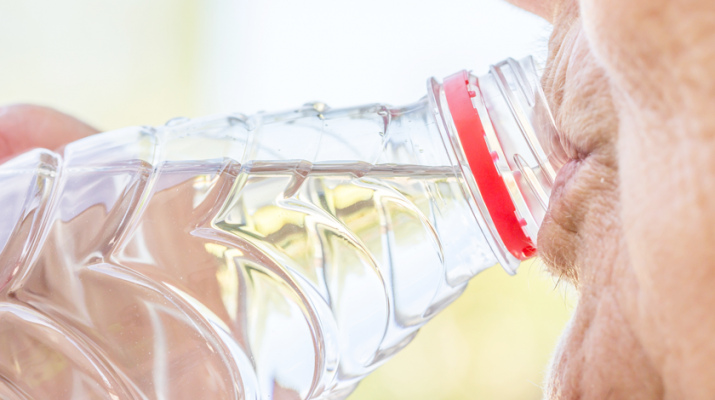By Deborah Jeanne Sergeant
For most people, extremely hot weather is a bit of a nuisance and fodder for light conversation. For elderly people, hot weather can be deadly.
According to the U.S. Environmental Protection Agency, “since 1999, people aged 65-plus have been several times more likely to die from heat-related cardiovascular disease than the general population.”
Heat exhaustion, which can include heavy sweating, pale and clammy skin, body temperature between 100 and 104 degrees, and dizziness, can progress into heat stroke, a life-threatening state in which patients manifest flushed, hot skin; less sweating because of dehydration; disorientation or fainting; rapid respiration; and high or low blood pressure.
So why are older adults more prone to heat exhaustion and heat stroke?
“One major issue is they don’t have a normal thirst mechanism and don’t recognize when they’re dehydrated,” said physician Daniel Ari Mendelson. “They should pay attention to how much they drink and if their urine is dark.”
That’s one sign of dehydration.
Mendelson is a William and Sheila Konar Family professor of geriatrics, palliative medicine, and person-centered care with the division of geriatrics, department of medicine, University of Rochester, School of Medicine & Dentistry. He also serves as associate chief of medicine at Highland Hospital.
Mendelson said that sensitivity to heat worsens the more dehydrated the person becomes; that’s why sufficient hydration represents the first step in combating heatstroke.
Some older adults take diuretic medication and should discuss with their doctors about adjusting the dose during hot weather. Mendelson advises older adults to set hydration goals with their care provider.
“Once they get into heatstroke or heat exhaustion, it becomes a vicious cycle,” Mendelson said.
Drinking caffeinated beverages like cola, tea or coffee or drinking alcohol tend to further dehydrate people since they are diuretics. Water hydrates best. For people who don’t like the taste of water, adding slices of lemon or cucumber can flavor it.
“Have a water bottle with you at all times,” Mendelson said. “Go to the movies, a restaurant or coffee shop, especially from 11 a.m. to 2 or even until about 4 or 5 p.m. on the hottest days. At least get out of the heat of the day.”
Libraries, churches, senior centers and shopping malls are also usually air conditioned.
People who need an air conditioner but cannot afford one may be eligible to receive up to $800 in help purchasing and installing a unit through the HEAP cooling assistance benefit through Aug. 31 or until funding runs out. Visit http://otda.ny.gov/programs/heap/contacts to find your county’s contacts.
Physician Az Tahir practices holistic integrative medicine at Campanella Wellness in Rochester. He said that for seniors who don’t have or don’t want an air conditioner, an “Indian air conditioner” can help. Wring out a wet cloth and hang it in front of a fan so it can blow cooled air.
“Use wet towels to keep the skin and head cool,” he said. “Keep your legs in cool water with Epsom salts in it. It helps keep the body cool. You can take more frequent showers.”
Avoid outdoor activity during the hot part of the day.”
For example, garden very early in the morning or closer to sunset or consider hiring temporary help for weeding, pruning and mowing.
Exercise in an air conditioned environment or go swimming. Many communities open their school pools for free recreational use.

